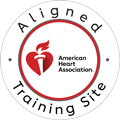Down Syndrome is a genetic disorder which occurs when there is a full or extra copy of chromosome 21. Typically, the nucleus which stores genetic material contains 23 pairs of chromosomes, accounting for a total of 46 chromosomes that help shape the genetic make up of an individual; however, an individual with Down Syndrome will have a total of 47 chromosomes, or the normal amount of 46 chromosome, but with an additional part of the 21st chromosome attached to another chromosome.
This additional genetic material affects individuals differently, however, all individuals with Down Syndrome experience varying forms of intellectual disability as well as developmental delays. It is estimated that nearly 400,000 Americans have Down syndrome, and that Down Syndrome is the most common genetic disorder in the United States. Often, individuals with Down Syndrome contain similar physical traits, as the genetic disorder produces common characteristics in the human body. Such characteristics include but are not limited to low/poor muscle tone, upward slanting eyes, a small head with flattened facial features, and a single deep crease which extends across the palm of an individual. Furthermore, individuals with Down Syndrome tend to be on the shorter side, and it is not uncommon for such individuals to experience developmental troubles, including heart defects, as well as a weakened immune system. Lastly, people with Down Syndrome are more likely to develop problems with obesity when compared with the rest of the population, and are more prone to have poor eyesight.
It is important to note that Down syndrome is not inherited, or at least in most cases it is not. Out of the three cases of Down syndrome, Translocation Down syndrome is the only case in which Down Syndrome may be inherited from the parent. The other two case of Down syndrome include Trisomy 21 and Mosaic Down syndrome. These two cases combined account for roughly 96% of the cases of Down syndrome, with the most common case of Down syndrome being caused by the case of Trisomy 21 (makes up 95 percent of cases of Down syndrome.)
Trisomy 21 occurs when abnormal cell division takes place during the development of either the sperm cell or the egg cell. This causes a child to be born with 47 chromosomes instead of the typical 46. Mosaic Down Syndrome also accounts for children to be born with 7 chromosomes instead of 46, however the abnormality in cell division occurs after fertilization of the egg. Translocation Down syndrome on the other hand can occur either before or at fertilization, however, this case of Down syndrome occurs when a part of chromosome 21 attaches to another chromosome, resulting in a child carrying the normal amount of chromosomes, yet still suffering from the genetic disorder. *Note, that the reason this is called “Translocation Down syndrome” is because the act of chromosome 21 attaching to another chromosome is called.. you guessed it! Translocation!
There is no strong scientific evidence that seems to prove the theory that Down syndrome can be caused by specific environmental factors, or by actions performed by the parent before or during their pregnancy. However, with the advancement of technology, parents are able to determine whether their child has the genetic disorder prior to the birth of the child. Parents who have a greater chance of carrying a child with Down syndrome are often advised to seek the help of a genetic counselor before or after becoming pregnant. Such individuals include older mothers, mothers who have previously given birth to a child with Down syndrome, and both male and females who carry traces of a translocated chromosome 21in their DNA. Although there is no way to prevent Down syndrome, advancements in technology, our health care system, and understanding of the disorder continues to allow the parents and children and Down syndrome to live longer, and better lives than ever before.


